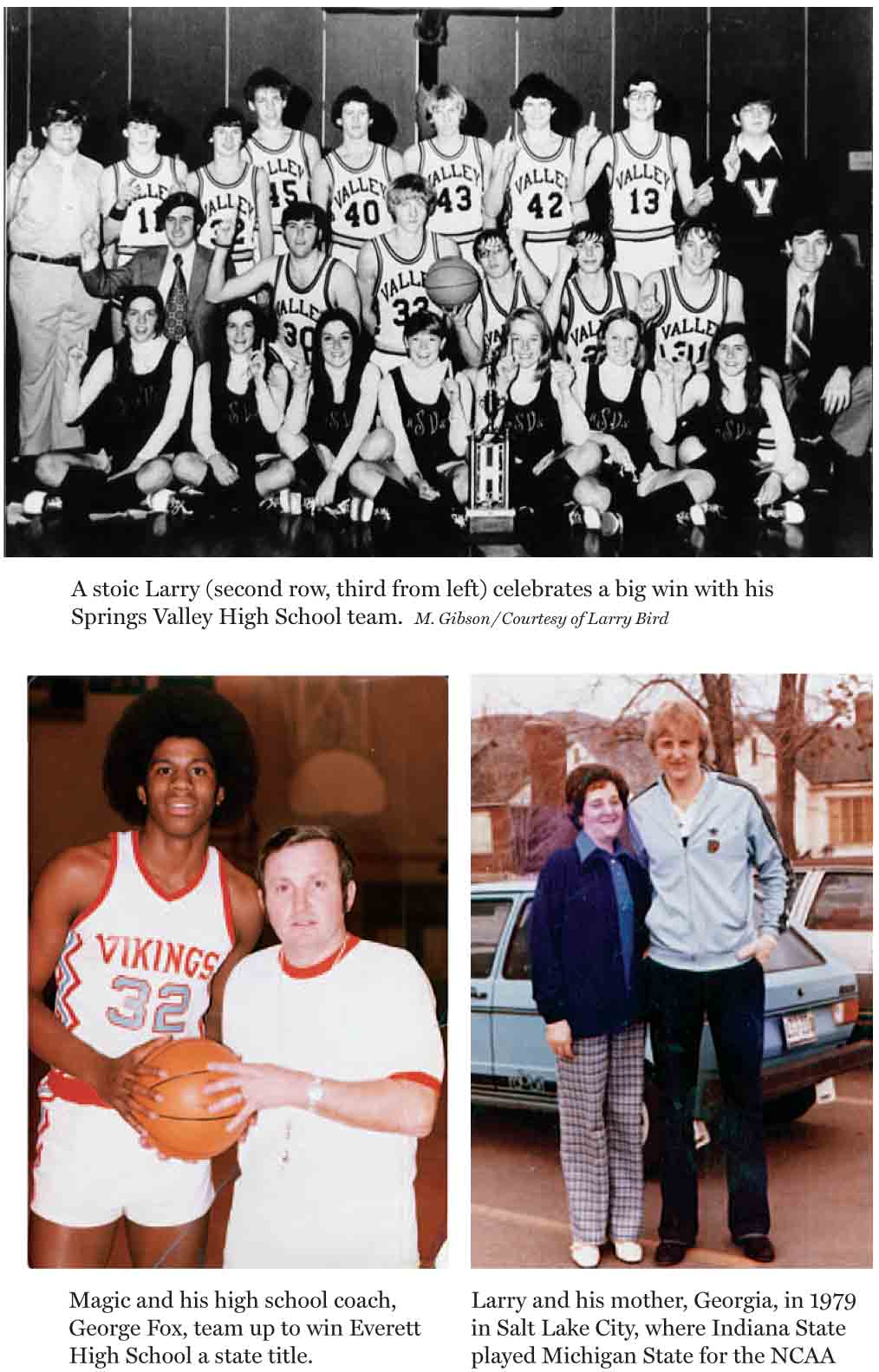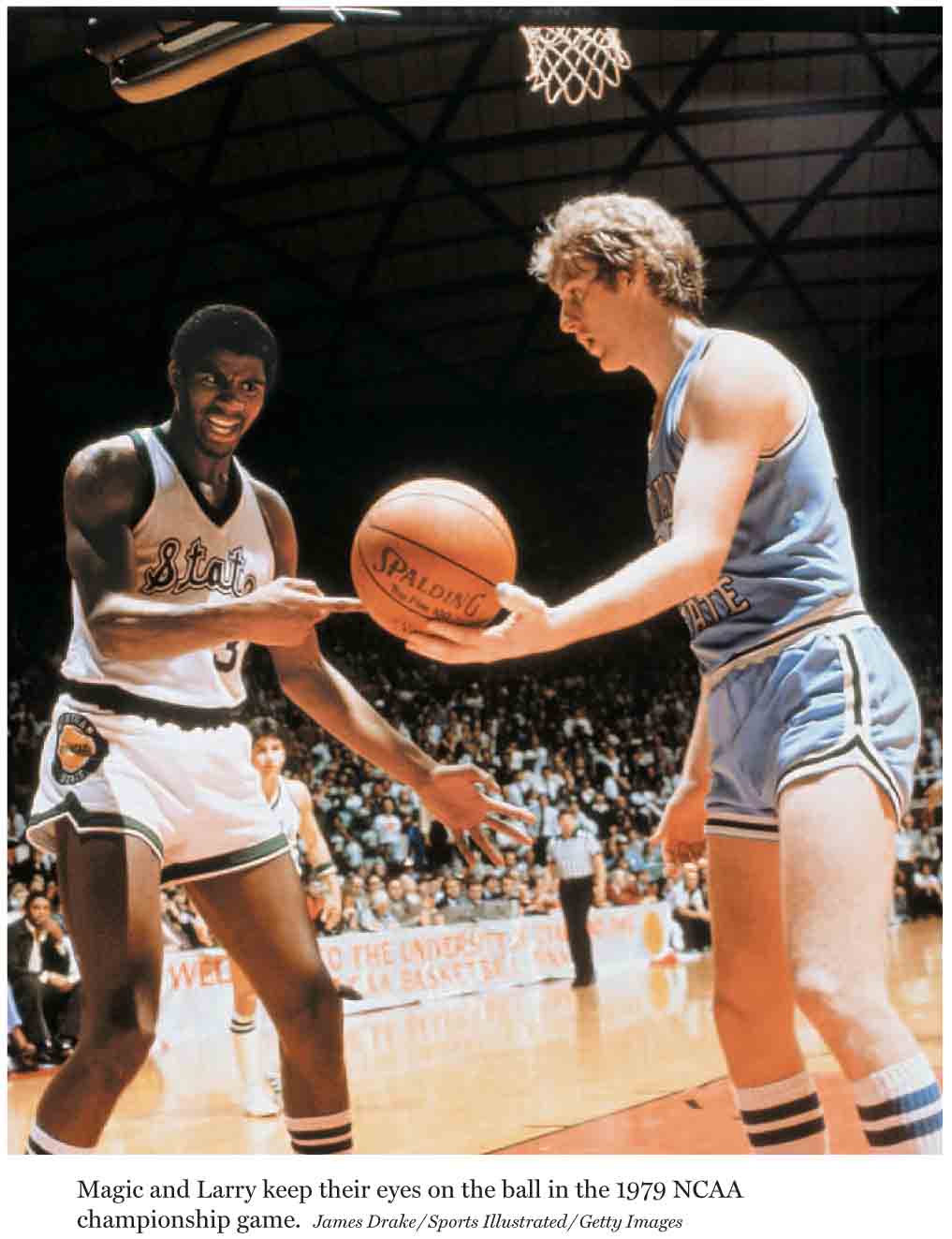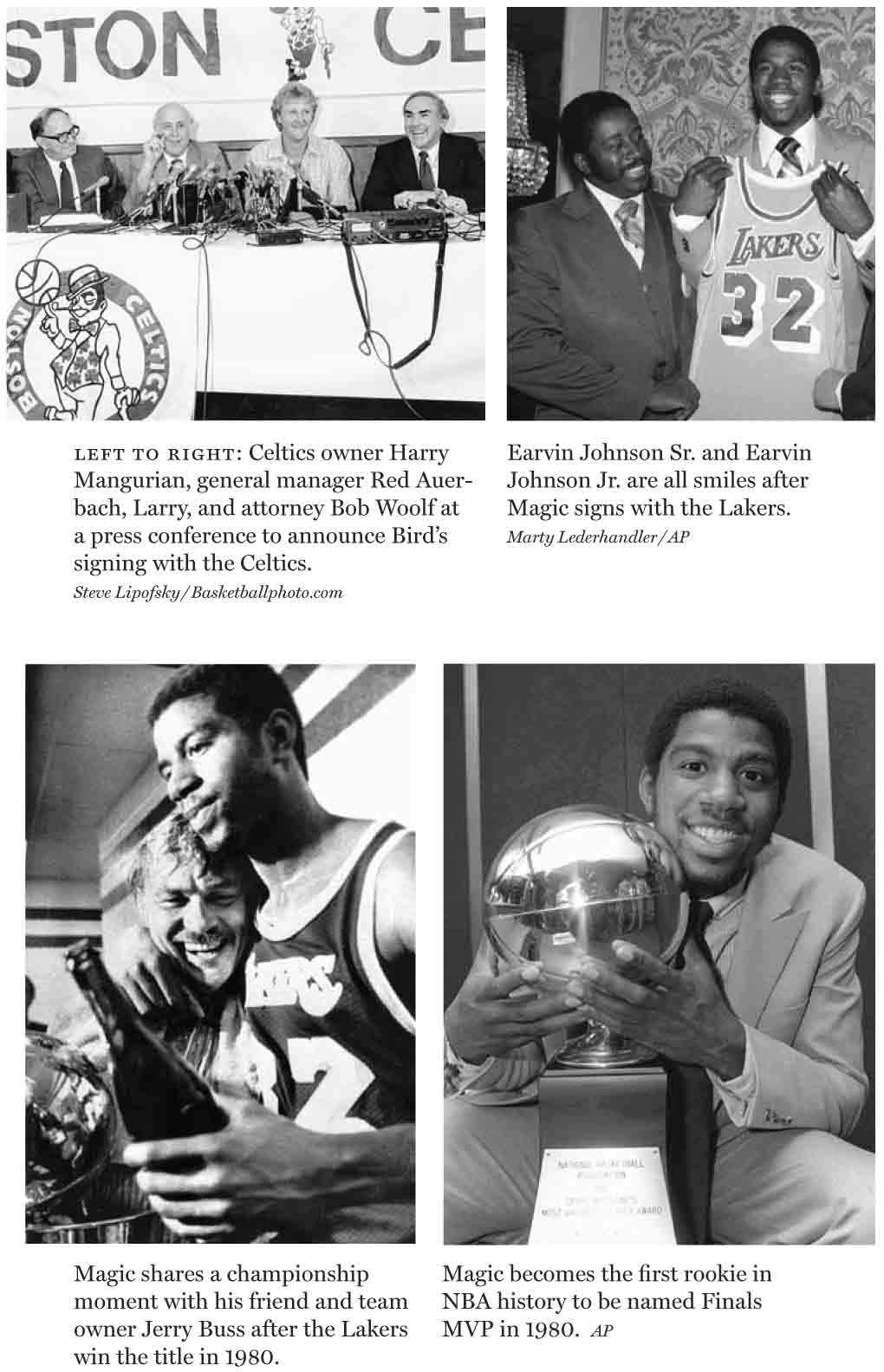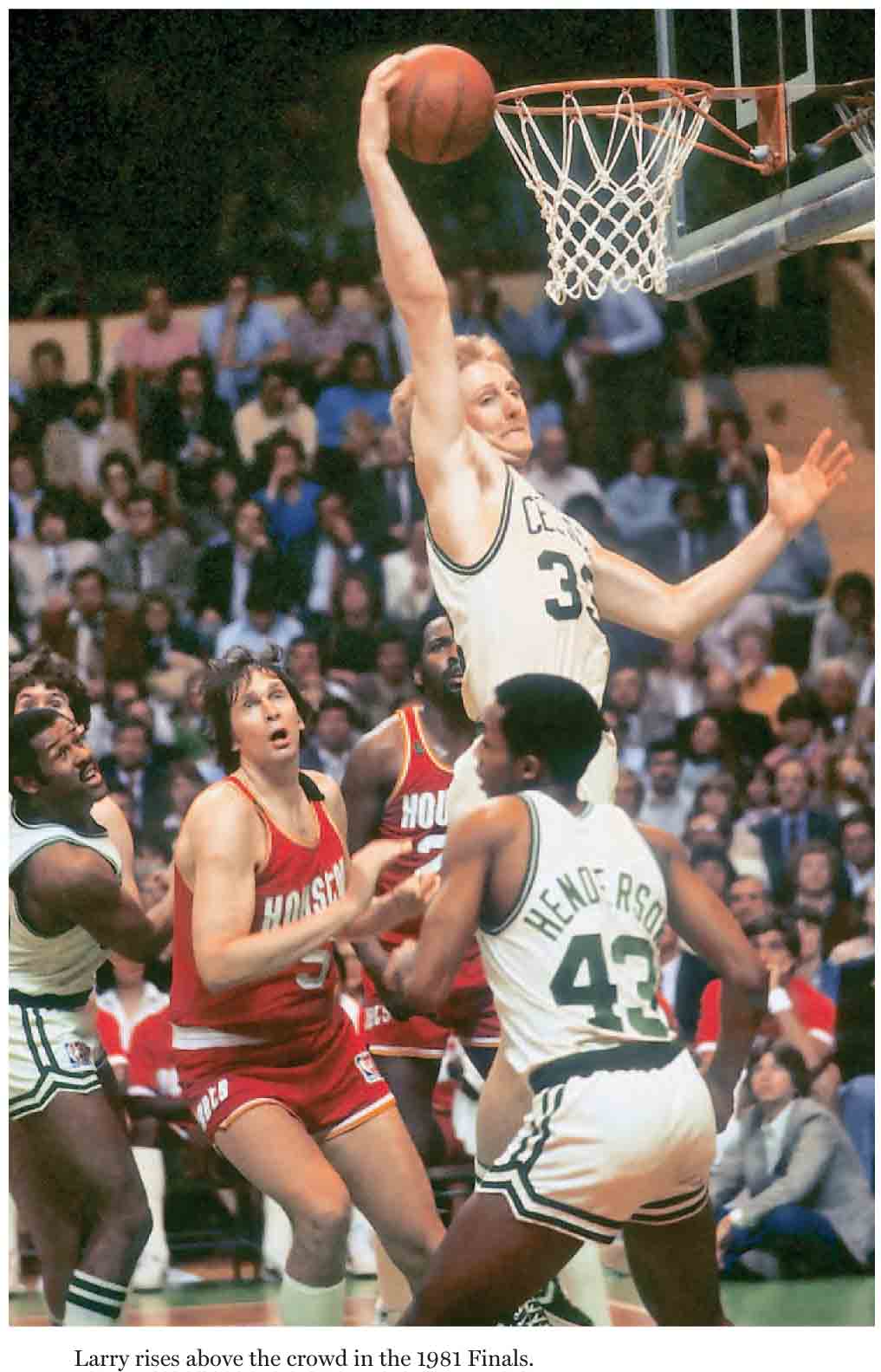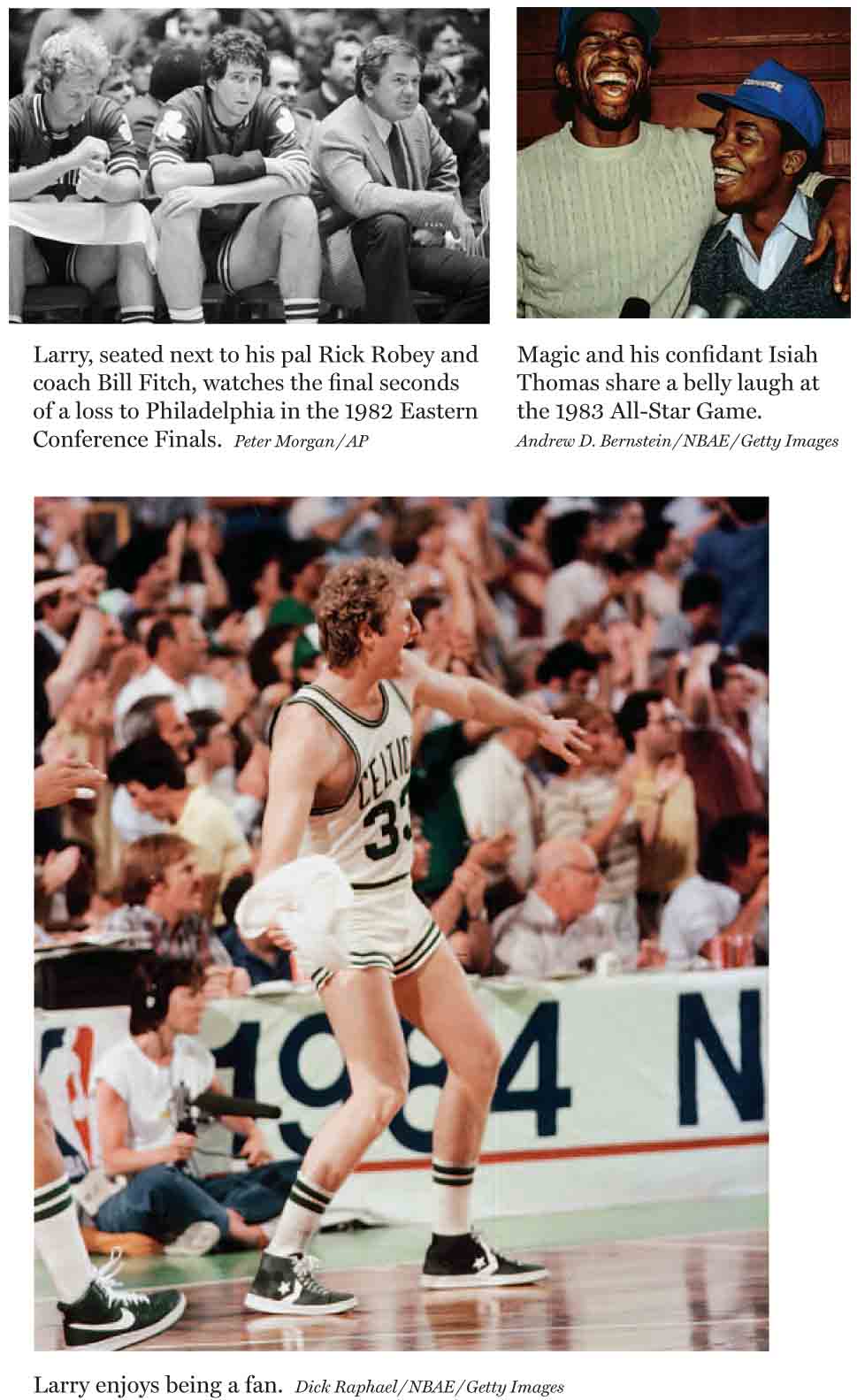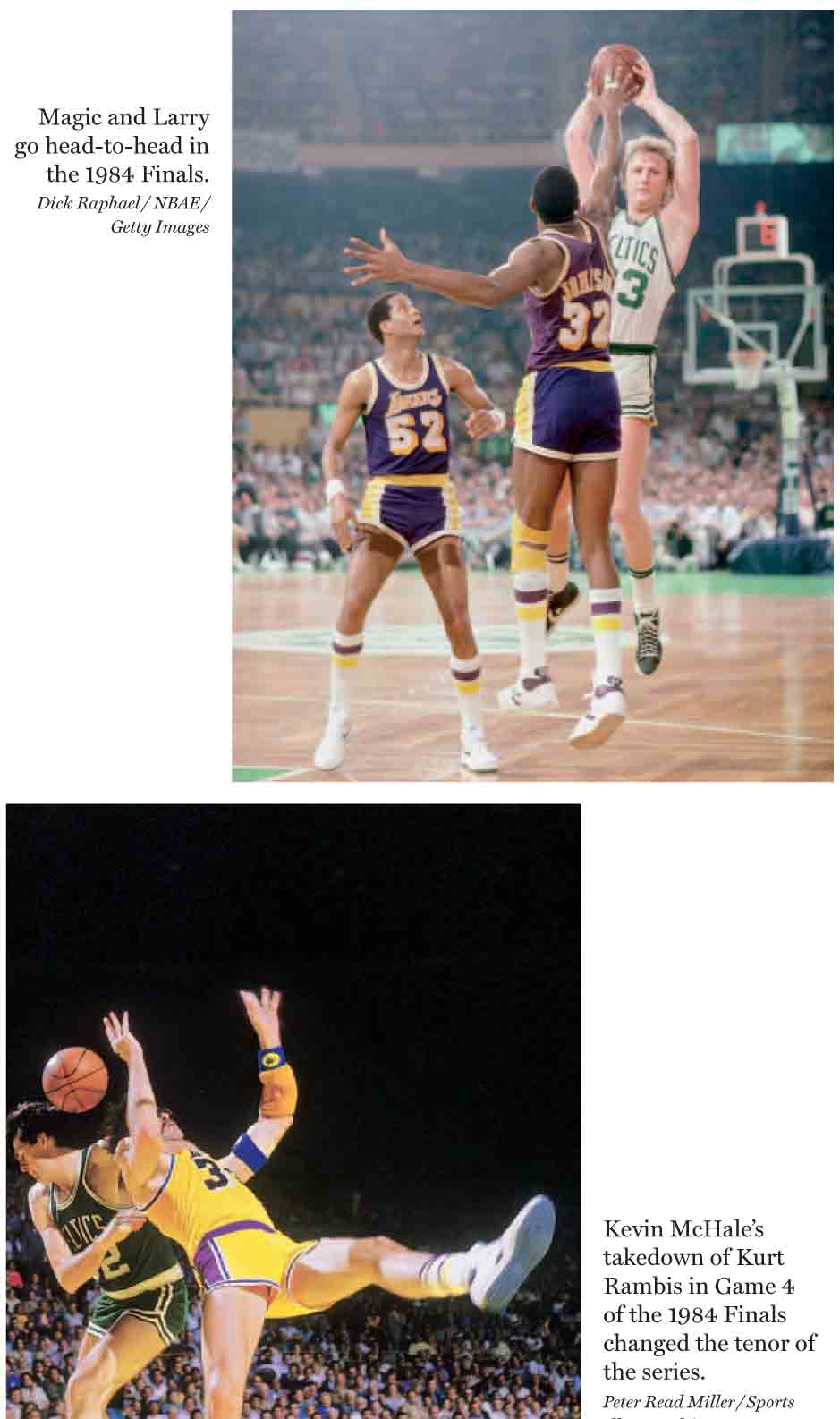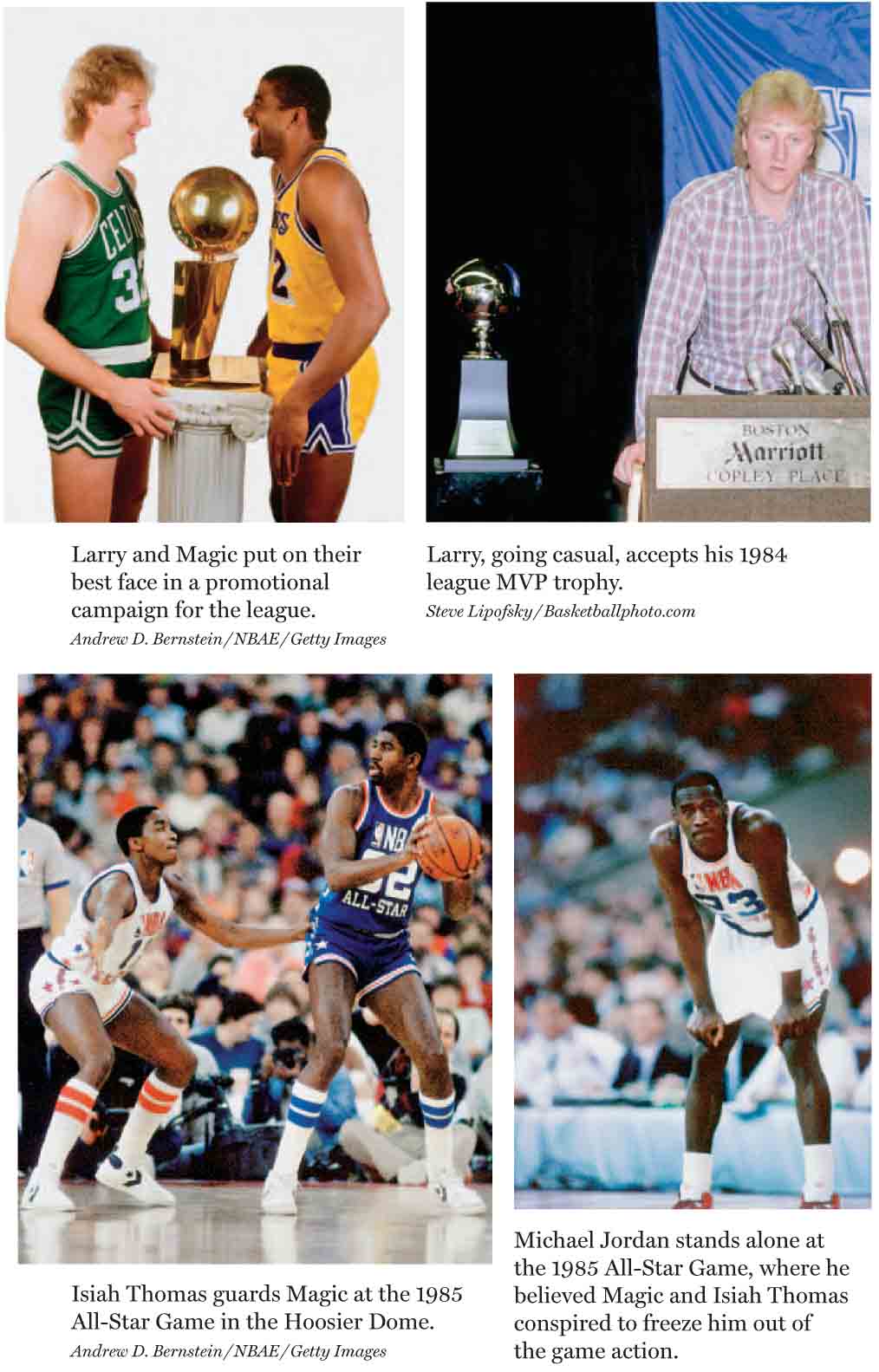When the Game Was Ours (21 page)
Read When the Game Was Ours Online
Authors: Larry Bird

Riley needed a spark, and he turned to the kid, Byron Scott, who had spent an entire season auditioning for his Laker teammates. He hit four clutch jumpers to kick-start one final Los Angeles rally.
"Who the hell is Byron Scott?" asked Maxwell incredulously as he watched Scott steal a win for the Lakers and keep their championship hopes alive.
Bird checked out with 28 points on 8-of-11 shooting and left the Forum frustrated with his lack of touches in the final minutes. He wanted the ballâand he desperately wanted to end the series in Los Angeles. But Magic, who scored 21 points, dished out 10 assists, and grabbed 6 rebounds, had other ideas. He didn't want Bird gloating in his building.
"Not in our house!" Johnson urged his teammates.
As the Celtics left the Forum floor, they were pelted with debris from the hostile LA crowd. Carr was struck in the eye by a cup loaded with a concoction of mustard, beer, and chewed-up hot dogs.
In the wee hours the following morning, after the Celtics had taken a red-eye to LaGuardia and were waiting for a shuttle flight back to Boston, Auerbach sidled over to Bird to try to gauge his mood.
"What do you think?" Auerbach asked.
"No question we'll win this one," Bird answered. "We should have won it on their floor. I'm ticked we let it get away. We won't let this one go."
Lakers owner Jerry Buss engaged in a similar conversation with his own young superstar as they traveled back to Boston. Even though LA had won convincingly in Game 6, Buss sensed that Magic seemed distracted, a little down. It was a side of Johnson that Buss had never seen before on the court, and it worried him.
"Usually Earvin shook off mistakes pretty well," Buss said. "But this was different."
Buss was right. It
was
different. Magic had always been a winnerâin high school, in college, in his first season as a professional. He was frustrated by his uneven results, which were further exacerbated in his mind by the clutch plays Bird had made. It was bad enough that the Lakers had faltered in a series they should have already won, but to blow it to the Celtics and Larry Bird in their first-ever head-to-head Finals was an unbearable notion.
The Celtics had never lost a championship series clincher on their home floor. K. C. Jones reminded his team of that before Game 7âand so did Riley.
Carr emerged from the locker room for pregame warm-ups wearing goggles. While Boston's public relations staff claimed it was protection for his injured eye, most of the 14,890 Celtic loyalists in attendance knew the real reason: he was mocking Kareem, who was donning similar eye gear.
In the Lakers huddle just before tip-off, Magic surveyed the faces of his Lakers teammates. Kareem, as always, was a blank page, impossible to read. Yet when Johnson looked into the eyes of the rest of the starters, he saw the one thing he dreaded most: doubt.
"We had lost our edge," Magic said. "That takedown of Rambis had totally changed the complexion of the series."
Ninety-four feet away in Boston's huddle, Bird took a mental inventory of his team. What he saw was a group of veterans who were loose and confident. Moments earlier, as K. C. reviewed their game plan, the ever-cocky Maxwell announced, "Jump on my back, boys."
Maxwell backed up his bravado. He was electric on both ends of the floor, scoring 24 points with 8 rebounds and 8 assists. He also shot 14 of 17 from the line. Boston reverted to doing what it did bestâpunishing teams in the paintâand finished with a staggering 52â33 advantage on the boards.
Bird submitted 20 points on another mediocre night of shooting (6 of 18), but he was a perfect 8 for 8 from the line and hauled in 12 rebounds.
LA mounted a last-gasp run and had a chance to cut the deficit to one in the final minute, but D.J., who had stalked Magic from end line to end line throughout the night, stole the ball from his friend, then clinched the championship with a pair of free throws.
As Bird and his teammates mobbed one another at center court, Magic jogged to the same tiny visitors' locker room that Jerry West had occupied two decades earlier. Just as his general manager had done after a crushing defeat to Boston, Johnson sat in full uniform for several minutes, trying to fathom how it all had gone wrong.
"The Lakers, I felt, showed their true colors," Bird said. "I always thought they were soft, and they were that season."
While the Celtics celebrated madly down the hall, Magic lingered in the shower. He was normally the most accommodating star when it came to dealing with the media, but on this day he could barely face his teammates, never mind the national press. He remained sitting on the floor of the shower next to Cooper for the better part of a half-hour with the water spilling over him.
"All the water in the world wasn't going to wash away that pain," Riley said.
The coach finally sent Aguirre and Thomas in to retrieve him.
"I don't think I ever recovered from Game 2," Magic conceded. "I never felt in control after that. It was the first time I failed in a big situation. I'm used to coming through, and I didn't, and I handled it the wrong way.
"Instead of just saying, 'That was one game, I'm moving on,' I kept thinking about it. I couldn't let it go, and it carried through the whole series."
As the Lakers filed quietly onto their team bus, the Celtics fans partied wildly in the street. Within minutes, they identified the inhabitants of the luxury bus near the loading dock of the Garden.
A gang of more than 100 people surrounded the bus and began rocking it back and forth. The driver radioed for help; the Lakers slunk low in their seats as fans began throwing debris at the windows.
"It was frightening," Magic said. "Our nerves were shot to begin with because of this devastating loss, and now everyone is freaking out because we were surrounded and we couldn't go anywhere.
"We had no choice. We had to sit there and take it."
After several minutes, the police had dispersed the crowd. The bus finally crawled back to the Sheraton Hotel, a handful of "green people" in pursuit. Magic opened the door to his hotel room and dropped his boom box on the dresser. It was turned off, silent since that morning. Aguirre and Thomas trailed behind him, and while Magic appreciated their friendship, he desperately wanted to be alone.
"When they finally left, I cried like a baby," Magic said.
Ten miles away in Winchester, a Boston suburb, the Celtics had moved their celebration from Chelsea's to the home of team marketing director Mike Cole. Bird stayed until the sun came up, basking in the thrill of eliminating the "Fakers."
"It was one of those nights that you wished would never end," Bird said.
The forward, still feeling the effects of the victory celebration, did a live interview with a morning radio program. The team was departing shortly to visit President Reagan at the White House, and Bird announced he wasn't going.
"If the president wants to see me, he knows where to find me," Bird chuckled.
On the morning of June 13, Magic Johnson stood in the lobby with his bags packed. It was 6
A.M.
, but he was wide awake. In fact, like Bird, he never really went to sleep.
"It was the worst night of my life," Magic said. "I told myself, 'Don't ever forget how you feel right now.'"
The morning after Boston's celebration, Bird finally went home for a little shuteye. Around midafternoon, Buckner, who was experiencing his first-ever NBA title, drove to Bird's Brookline home with the hope of celebrating all over again. Dinah informed Buckner that Larry wasn't there.
"He was out running," Buckner said. "When he got back, I said to him, 'Man, what are you doing?'"
Bird looked at him quizzically before he answered.
"I'm getting ready for next year," he said.
